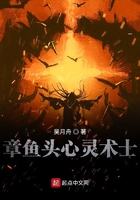At length,when he had made himself sure—quite,quite sure—that she was gone,that it had come to the worst,that they had stolen her from him,he slowly reascended the lower stairs—those stairs which he had mounted so nimbly and triumphantly on the day he had saved her.He now went over the same ground with dejectedly drooping head,voiceless,tearless,with bated breath.The church was once more solitary and silent.The archers had quitted it to pursue their search for the sorceress in the city.Quasimodo,left alone now in the vast Cathedral,so thronged and tumultuous but a moment before,made his way to the cell where the gipsy girl had slept for so many weeks under his watchful protection.
As he drew near it he tried to delude himself that he might find her there after all.When,on reaching the bend of the gallery that looks down on the roof of the side aisle,he could see the narrow cell with its little window and its little door,lying close under one of the great buttresses,like a bird's nest under a bough,the poor creature's heart failed him,and he had to lean against the pillar to save himself from falling.He pictured to himself that perchance she had returned;that some good genius had brought her back;that this little nest was too quiet,too safe,to cosy for her not to be there;and he dared not venture a step nearer for fear of dispelling his illusion.'Yes,'he said to himself,'may-be she sleeps,or she is at her prayers.I will not disturb her.'
At last he summoned up courage,advanced on tip-toe,looked in,entered.Empty!The cell was still empty.Slowly the unhappy man made the tour of the little place,lifted up her pallet and looked beneath it,as if she could be hiding between it and the stone floor,shook his head,and stood staring stupidly.Suddenly he furiously stamped out his torch,and without uttering a word or breathing a sigh,he hurled himself with all his strength head-foremost against the wall and fell senseless to the ground.
When he came to himself,he flung himself on the bed,rolling on it and pressing frenzied kisses on the pillow,which still bore the imprint of her head.Here he lay for some minutes,motionless as the dead,then rose,panting,crazed,and fell to beating his head against the wall with the appalling regularity of the stroke of a clock and the resolution of a man determined to break his skull.At length he dropped down exhausted,then crawled outside the cell,and remained crouching,motionless,opposite to the door for a full hour,his eyes fixed on the deserted cell,sunk in a gloomier,more mournful reverie than a mother seated between an empty eradle and a tenanted coffin.He spoke no word;only at intervals a deep sob convulsed his whole frame,but a sob that brought no tears,like the silent flashes of summer lightning.
It was then that,striving amid his despairing memories to divine who could possibly have been the unforeseen ravisher of the gipsy girl,the thought of the Archdeacon flashed into his mind.He remembered that Dom Claude alone possessed a key of the stair-case leading to the cell;he recalled his nocturnal attempts upon Esmeralda,the first of which he,Quasimodo,had assisted,the second prevented.He called to mind a thousand various details,and soon was convinced that it was the Archdeacon who had taken the gipsy from him.Nevertheless,such was his reverence for the priest,so deeply were gratitude,devotion,and love for this man rooted in his heart,that they resisted,even at this supreme moment,the fangs of jealousy and despair.The moment that Claude Frollo was concerned,the bloodthirsty,deadly resentment he would have felt against any other individual was turned in the poor bell-ringer's breast simply into an increase of his sorrow.
At the moment when his thoughts were thus fixed upon the priest,as the dawn was beginning to gleam upon the buttresses,he beheld on the upper story of the Cathedral,at the angle of the balustrade that runs round the outside of the chancel,a figure advancing in his direction.He recognised it—it was the Archdeacon.
Claude was moving with a slow and heavy step.He did not look before him as he walked,his face was turned aside towards the right bank of the Seine,and he held his head up as if endeavouring to obtain a view of something across the roofs.The owl has often that sidelong attitude,flying in one direction while it gazes in another.In this manner the priest passed along above Quasimodo without catching sight of him.
The deaf spectator,petrified by this sudden apparition,saw the figure disappear through the door leading to the stair of the northern tower,which,as the reader is aware,commands a view of the Htel-de-Ville.
Quasimodo rose and followed the Archdeacon,mounting the stair after him to find out why the priest was going there.Not that the poor bell-ringer had any definite idea of what he himself was going to do or say,or even what he wanted.He was full of rage and full of dread.The Archdeacon and the Egyptian clashed together in his heart.
On reaching the top of the tower,and before issuing from the shade of the stair-case,he cautiously investigated the position of the priest.The Archdeacon had his back towards him.An openwork balustrade surrounds the platform of the steeple;the priest,whose eyes were fixed upon the town,was leaning forward against that side of the square balustrade which faces the Pont Notre-Dame.
With noiseless tread Quasimodo stole up behind him,to see what he was so intently gazing at,and the priest's attention was so entirely absorbed elsewhere that he did not hear the step of the hunchback near him.















